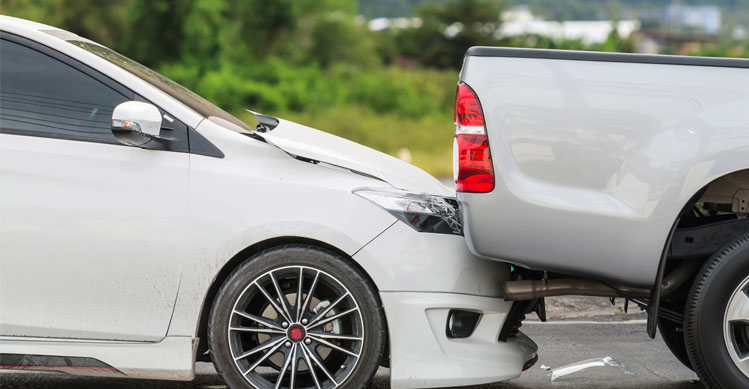When it’s time to sell your car, you’ll probably have some mixed feelings. We often get attached to our wheels. They’ve shared some of the big moments in our lives and safely carried us on countless routine trips.
But sooner or later we all need to sell, whether we’re cashing up to head overseas, upgrading to something newer or bigger, or going green with a bike and public transport. So while you might be dreading the process ahead, at least you’ll be getting the cash to chase your goals.
Here are some ideas to help smooth the process. They include handy tips on getting ready to sell your car, how to find a buyer in less time and a heads up on the forms you need to complete the sale.
If you have a to sell your car by a certain date, like when you’re heading away or need to make the final payment on your new car, try to leave yourself plenty of time. That way you’ll avoid having to let it go for less than it’s worth, just to make the sale.
The best time of year to sell your car
To some extent this depends on the type of car. But generally, after Christmas isn’t great because things slow down as people are often on holiday or recovering from a Christmas splurge.
Low-cost cars appeal to younger tourists wanting to travel around the country for a few months or more. So demand for these cars can increase in spring and early summer, which is good for sellers, but in autumn there are more back on the market, creating more selling competition and less demand.
Mid-priced cars are often bought in the lead up to Christmas, as people decide to give themselves a present or get something more reliable for the holiday road trip. Early December is a good time to start advertising if you’re chasing this market.
Family cars sell all year round, except for school holidays when parents can be super busy. But you might find more demand right before the school year begins or even in September when more babies are born.
If your car is fairly priced, runs well, has no fines owing on it and is wearing a fresh Warrant of Fitness, you’ll stand a better chance of finding the right buyer in time.
Getting ready to sell your car
A little preparation and planning will help your car to sell more quickly, saving you time spent with potential buyers and advertising costs. Here’s a quick checklist:
- Clean and tidy inside and out
- Service history and receipts if you have them
- Paid up road user charges, if they apply to your car
- A warrant of fitness that’s less than a month old
- A current vehicle licence (rego)
- No obvious maintenance issues
- A competitive asking price
To help set the right price, take time to get out in the market as though you’re a buyer. Look online for cars like yours with the same year and similar mileage. Visit a local car fair. A car dealer will never give you market price, as they need to make a profit, but getting a few offers from them will at least help you set a minimum selling price.
Selling without a new warrant of fitness
When a car is sold, New Zealand law says the warrant of fitness must be no more than a month old, unless the buyer agrees otherwise. So it’s always best to have a fresh warrant on the windscreen from the get go. It gives the buyer more confidence and they’re less likely to lose interest or find another car while they’re thinking about accepting your older warrant.
If you do sell your car with a warrant that’s more than a month old, make sure you get the buyers acceptance in writing on a dated and signed document. That way you’re better protected from any challenges or problems down the road.
When selling a car that has no current warrant of fitness at all, it must be advertised using the words ‘as is, where is’. Again, you should get the buyer’s signed and dated acceptance in writing, including their agreement to only drive the car on the road to get it repaired or for a warrant of fitness check.
When to start advertising your car
Selling a car can absorb a lot of your time. It may also take longer than you expect. The key to a low-stress selling process is deciding how you’ll sell it at least four weeks ahead of time. Once you’ve got your car looking its best, take a good set of photos both inside and out. Look online at the angles and features the dealers photograph. They’ve been at it long enough to know what works well and what doesn’t.
The next step is to start writing your ad. Put yourself in the buyers’ shoes and think about the information they’re most interested in. Begin your ad with those details. Again, look at online ads for your type of car to see what others have included. You could also try to include something positive about your car that will help it stand out from the rest. When you’ve gathered all the information and put together a first attempt, ask someone to check it over to make sure it reads well.
If you have a fixed selling deadline, start advertising your car at least three weeks before that date. Make sure you’ll be in town and have free time to respond to buyers’ questions and show them the car.
Where to advertise cars for sale
Trade Me charges a listing fee for vehicles, but it’s likely to reach a large audience, which can help you sell your car more quickly.
A sign in your car is worth considering. Not many people will see it, but it’s free. Keep the details brief and easy to read. Include the year, distance travelled, one or two sought-after features, the price and a contact phone number. Some local councils, including Auckland, have bylaws preventing people parking cars on the roadside to sell them. But it’s usually OK if you’re just using your car for day-to-day travel. So remember to check the rules in your area first.
Think about the main types of people who might be interested in your car and where they get information from. If your car would suit backpackers for example, there are free backpacker buy and sell groups on Facebook. Hostel and community noticeboards are another possibility.
Car selling forms
When you sell your car, by law both you and the buyer have to complete MR13A (seller) and MR13B (buyer) forms. It’s a good idea to do them together as you’ll need each other’s details. That way you’ll also know the buyer has done theirs, and you won’t be liable for any fines they get while driving the car.
The easiest way to complete the forms is online at the NZTA website. If you’re selling to a visitor from overseas who doesn’t have a New Zealand driver licence, they’ll have to complete paper forms instead at a PostShop, VTNZ or VINZ.
Do you need to update your car insurance?
When you are ready to buy your new car, State offers three different levels of cover to choose from:
- Comprehensive - Comprehensive car insurance with all the bells and whistles. Whether it’s someone else’s fault or you accidentally prang your car, we’ve got your back.
- Third Party, Fire and Theft - Cover with some protection including theft and fire, damage to someone else’s vehicle or property, damage to your car by an uninsured driver or injuring someone in an accident you’ve caused.
- Third Party Only - No-frills car insurance that covers damage to someone else’s vehicle or property, your liability if you accidentally injure someone, or for damage to your car caused by an uninsured driver.
You can get a quote and buy online in around 10 minutes!
You might also like...
-
 February 2022Driving Blog | State Insurance
February 2022Driving Blog | State InsuranceTop 10 Suburbs for Collisions
-
 August 2020Driving Blog | State Insurance
August 2020Driving Blog | State InsuranceProtecting Your Ride
-
 August 2020Driving Blog | State Insurance
August 2020Driving Blog | State InsuranceGetting Your Car Ready for a Summer Road Trip
